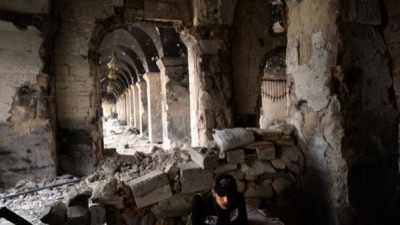UNESCO: Syria’s Six World Heritage Sites Endangered

UNESCO on Thursday added six ancient sites in Syria including a fortress of Saladin and a Crusader castle to the endangered World Heritage list, warning that more than two years of war had inflicted heavy damage.
“Due to the armed conflict situation in Syria, the conditions are no longer present to ensure the conservation and protection of the Outstanding Universal Value of the six World Heritage properties,” UNESCO said.
Syria has six World Heritage Sites: the ancient cities of Damascus, Bosra and Aleppo, the oasis of Palmyra, the castles of Crac des Chevaliers and Qal’at Salah El-Din – which counts as one site – and the ancient villages of northern Syria.
All six were placed on the list of World Heritage in Danger by the United Nations Educational, Scientific and Cultural Organization committee at its annual meeting in Phnom Penh.
“The decision is meant to rally support for the safeguarding of the sites,” UNESCO spokesman Roni Amelan stated.
Members also supported a French proposal calling for a special fund to help conserve World Heritage properties in Syria.
UNESCO said its information on the scale of the destruction was “partial” and came from unverified sources including social media and a report from Syrian authorities.
Aleppo’s old city, in particular, has “witnessed some of the conflict’s most brutal destruction,” it said, adding that the old citadel had been “caught in the line of fire.”
In April, the minaret of Aleppo’s ancient Umayyad mosque – originally built in the 8th century and then rebuilt in the 13th century – was totally destroyed.
Crac des Chevaliers and Qal’at Salah El-Din (Fortress of Saladin) have “been exposed to clashing and gunfire,” according to a report by Syrian authorities given to UNESCO.
Clandestine excavations, including looting of ancient tombs and grave sites, have also been reported at several of the sites, it added.
In February, at least 18 ancient mosaics depicting scenes from Homer’s “The Odyssey” were stolen during illegal excavations on archaeological sites in the country’s northeast, Syria’s culture minister said at the time.
UNESCO launched an appeal to Syria’s neighbors and the international community to fight illicit trafficking of cultural property coming from Syria.
Since the fighting began, UNESCO has repeatedly called on all parties to the conflict to preserve the country’s cultural heritage.

